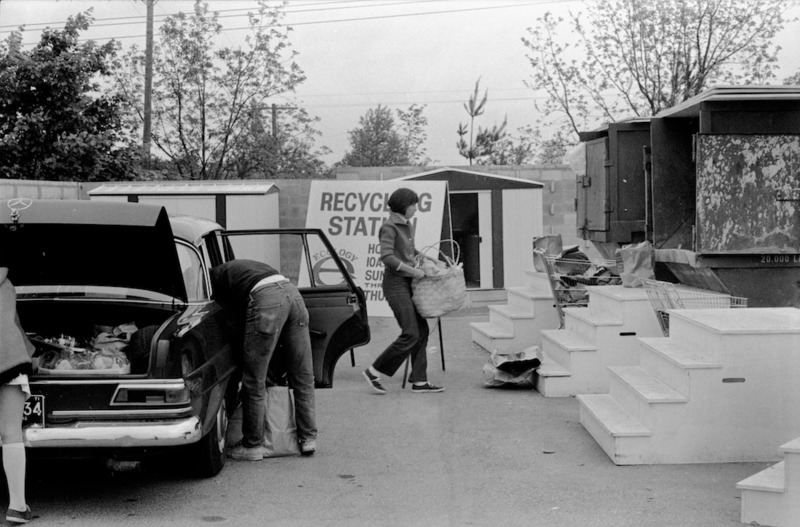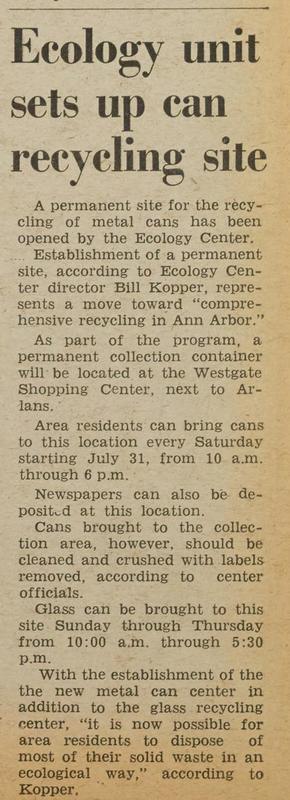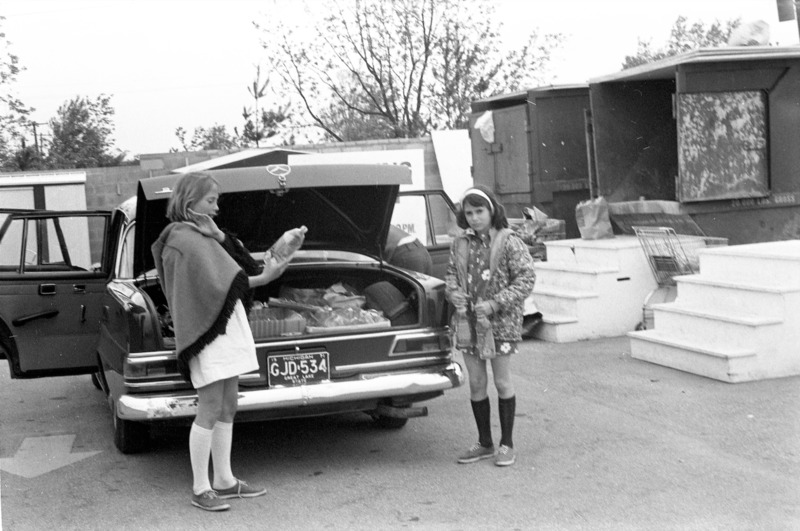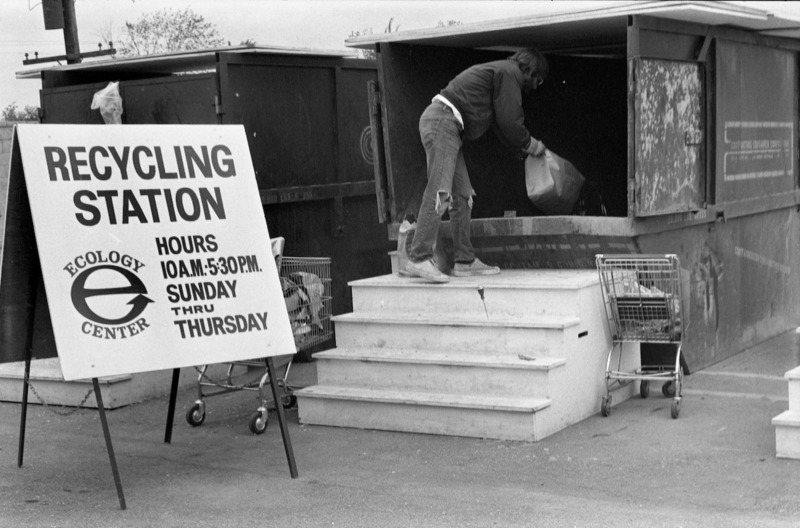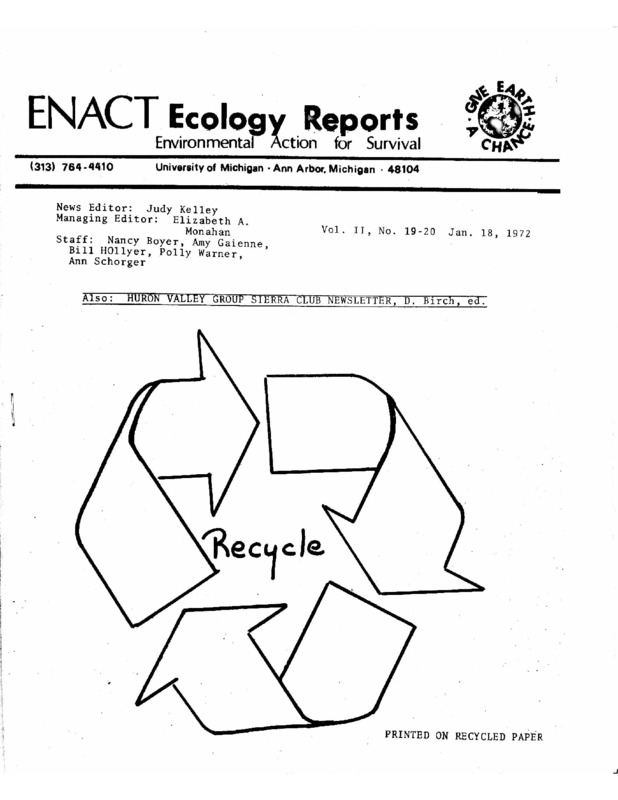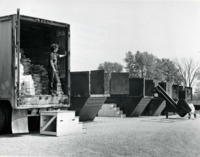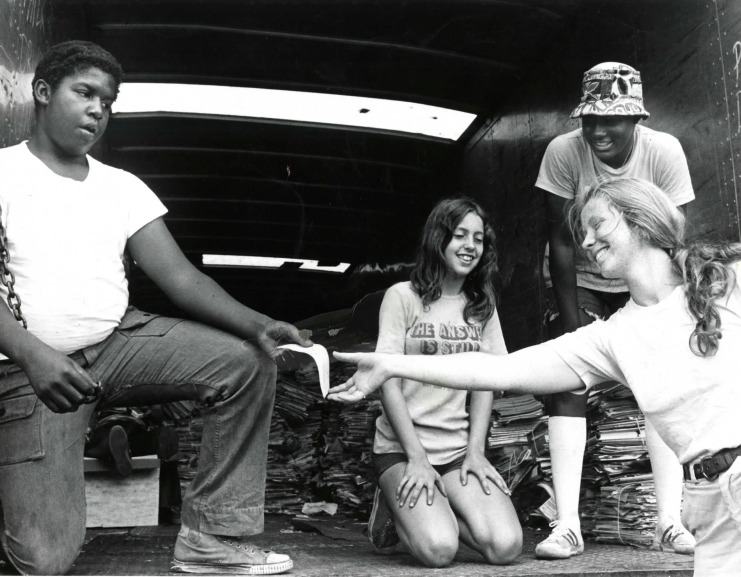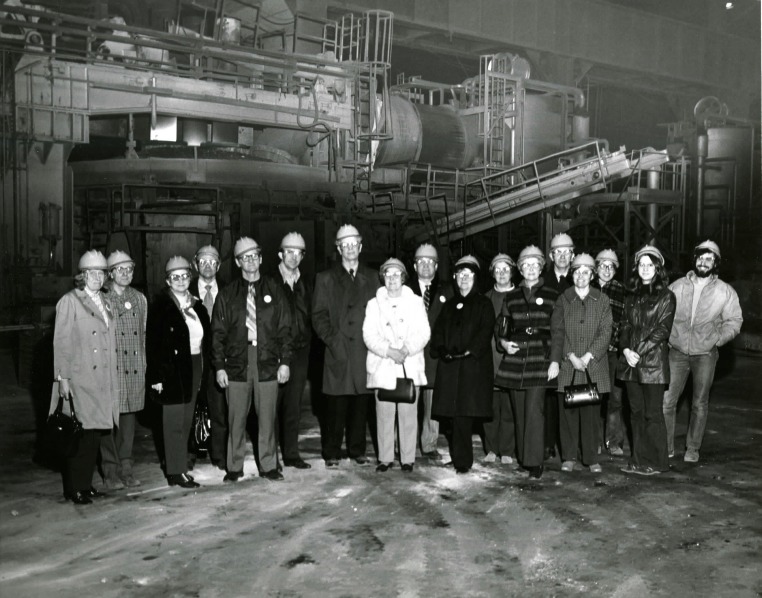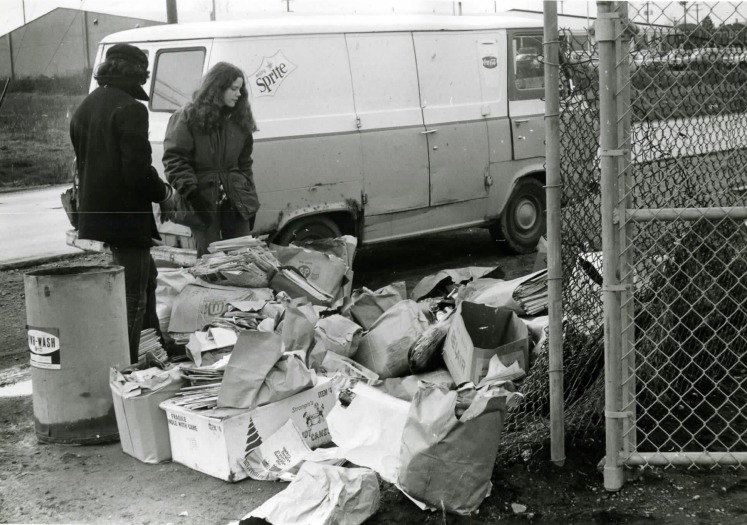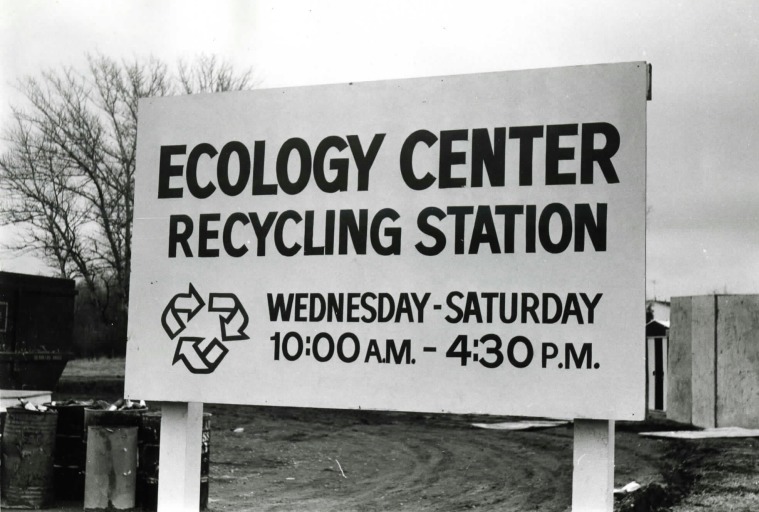See a related article from the Ecology Center's website, The Frontier of Recycling
Establishing Ann Arbor's First Recycling Program
After collecting more than 65 tons of glass during a two-day glass recycling drive organized by the Ecology Center, Owens-Illinois Glass Company partnered with the Ecology Center to establish a permanent recycling drop-off station in Ann Arbor. The station opened to the public in September 1970 at 221 Felch Street, close to the Ecology Center's headquarters in Kerrytown. Staffed Tuesday through Saturday by Center volunteers and two Owens-Illinois employees, the station accepted glass bottles that donors brought in bags, boxes, and car trunks. Owens-Illinois donated equipment, paid rent, and transported the glass to a plant seventy miles away in Charlotte, Michigan where it would be crushed and recycled to make new bottles. In nine months, the station collected more than two million pounds of glass. Over the next decade, this recycling program would expand with the Ecology Center, reducing Ann Arbor's impact on the environment.
To most Americans in 1970, recycling was a new idea. If Ann Arbor’s recycling program was to be successful, the public needed to understand not only how to recycle, but also why recycling was important. A June 1971 survey of participants in the recycling project revealed that most “were bewildered when questioned in detail about their reasons for recycling...it appeared to be ritual behavior to ‘Save the Earth.’” For this reason, the Ecology Center paired the establishment of its recycling center— one of the first in the country— with a community recycling education initiative. In statements like this one, Ecology Center explained “the theory behind ecology and rationale for recycling:"
“Since prehistoric times, man has been wasteful with natural resources and neglectful of his environment… Today we are continuing with the same action— oil is extracted, ores are mined, and timber is stripped from the Earth to provide raw materials for manufactured goods… Our industrial process has destroyed many natural habitats, and has altered the complex biological and chemical cycles which sustain life on Earth. Industry is like an animal species bent upon self-destruction— using all the resources until they are exhausted and then collapsing. Unfortunately, the death of this animal may have a devastating effect on man’s existence on this planet. In light of this information, it seems that we must cease interfering with natural cycles, and begin conserving energy and reusing our waste materials."
In May 1971, the recycling station moved to a lot near the Arborland Shopping Center and the Ecology Center took full financial control of the site. Because it was larger and further from the center of Ann Arbor, the new location was more accessible to those living in the surrounding communities. The community responded enthusiastically to the program, prompting the Ecology Center to open another recycling station at the Westgate Shopping Center on the opposite side of Ann Arbor one month later. Each Saturday, volunteers at the Westgate recycling center accepted newspapers bundled with string. In August, the center began accepting metal cans, a development which William Kopper, the Ecology Center's director, remarked was "a direct result of our desire to move toward comprehensive recycling in Ann Arbor." It was "now possible for area residents to dispose of most of their solid waste in an ecological way— thru recycling." Thanks to the Center's recycling education outreach, 1971 was a great success: in total, the Ecology Center and the Ann Arbor community recycled 2.7 million pounds of glass bottles, 107,000 pounds of newspapers, and 20,000 pounds of metal cans.
The Ecology Center’s recycling program soon outgrew both locations. On December 21, 1971, the recycling station relocated to 1965 South Industrial Highway, on land donated by the Coca-Cola Bottling Company of Ann Arbor. One and a half years earlier, protesters at the U-M Teach-In on the Environment targeted Coca-Cola for producing the bottles and cans that would be recycled at the new station. The recycling station remained at this location until 1976, when it moved to 2050 South Industrial Highway. Eventually, it accepted cardboard, paper bags, used motor oil, and computer cards in addition to glass bottles, newspapers, and metal cans.
In this video, Jim Frey, who volunteered with Recycle Ann Arbor and worked at the dropoff center on South Industrial during his first year working with the Ecology Center in 1979, describes the daily activities at the dropoff center. In particular, he recalls meeting a diverse group of volunteers at the dropoff center, including residents from across the city, other volunteers, and court workers assigned community service by local judges. This mix of people had to learn to efficiently and effectively work together to manage the steady influx of cars pulling up to the facility.
Through the perseverance of dedicated staff and volunteers, the Ecology Center raised the environmental consciousness of its community, proving in the process that community-supported recycling programs were possible and profitable. Revenue generated by the recycling centers soon composed half of the Ecology Center’s budget, allowing it to hire more staff members and fund new programs.
Despite this progress, those who worked at the Ecology Center recognized that their recycling program was an imperfect solution to Ann Arbor's growing solid waste problems. For many people, driving recyclable materials to the drop-off station was an inconvenience, and environmentalists knew that more households would participate if the recycling program could travel to them. Through a pilot program in 1971, the Ecology Center showed that Ann Arbor was ready for curbside recycling, and in 1978, two University of Michigan students made the project a reality by founding Recycle Ann Arbor, a curbside recycling service run by volunteers with a couple of pick-up trucks.

